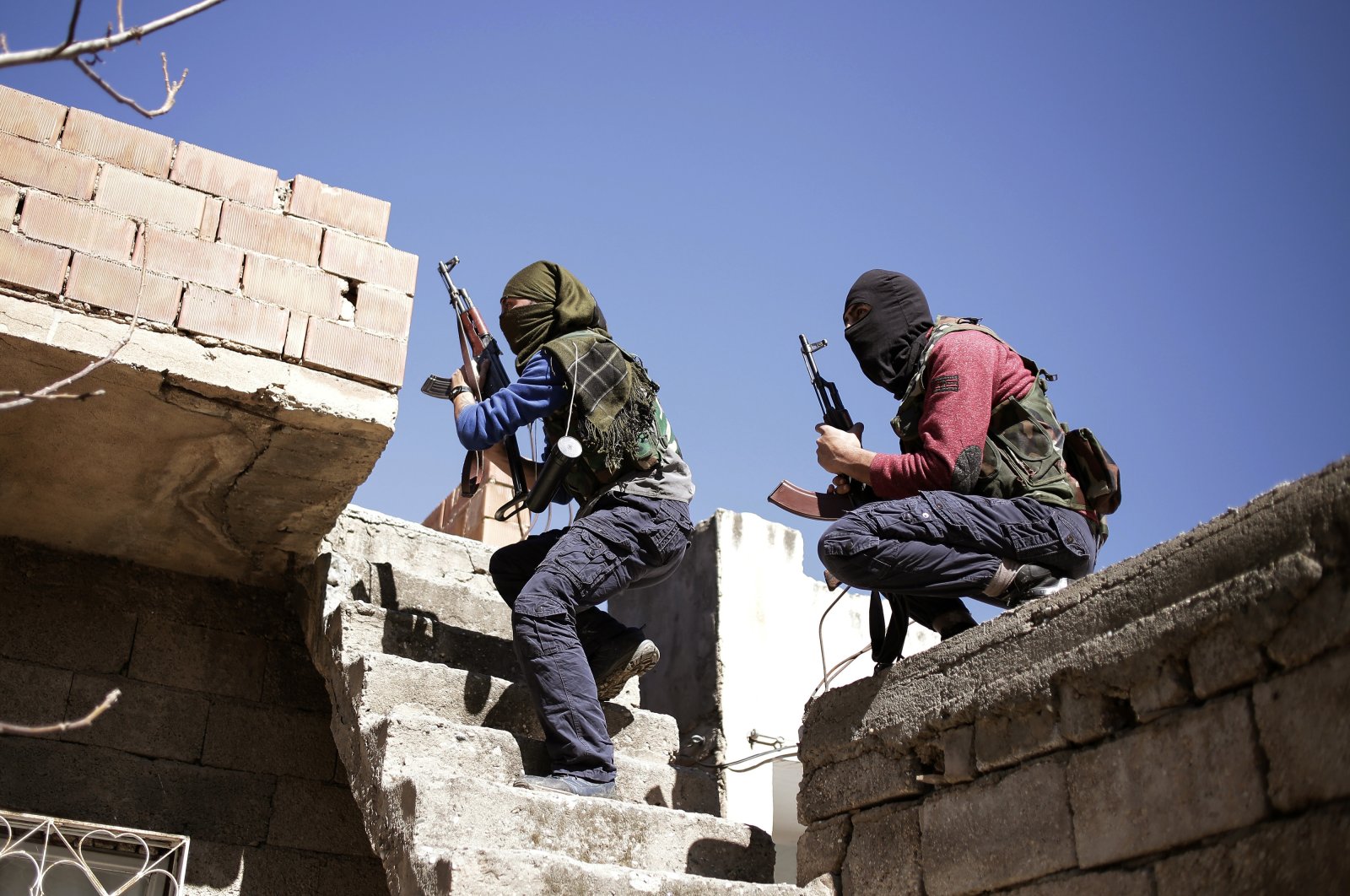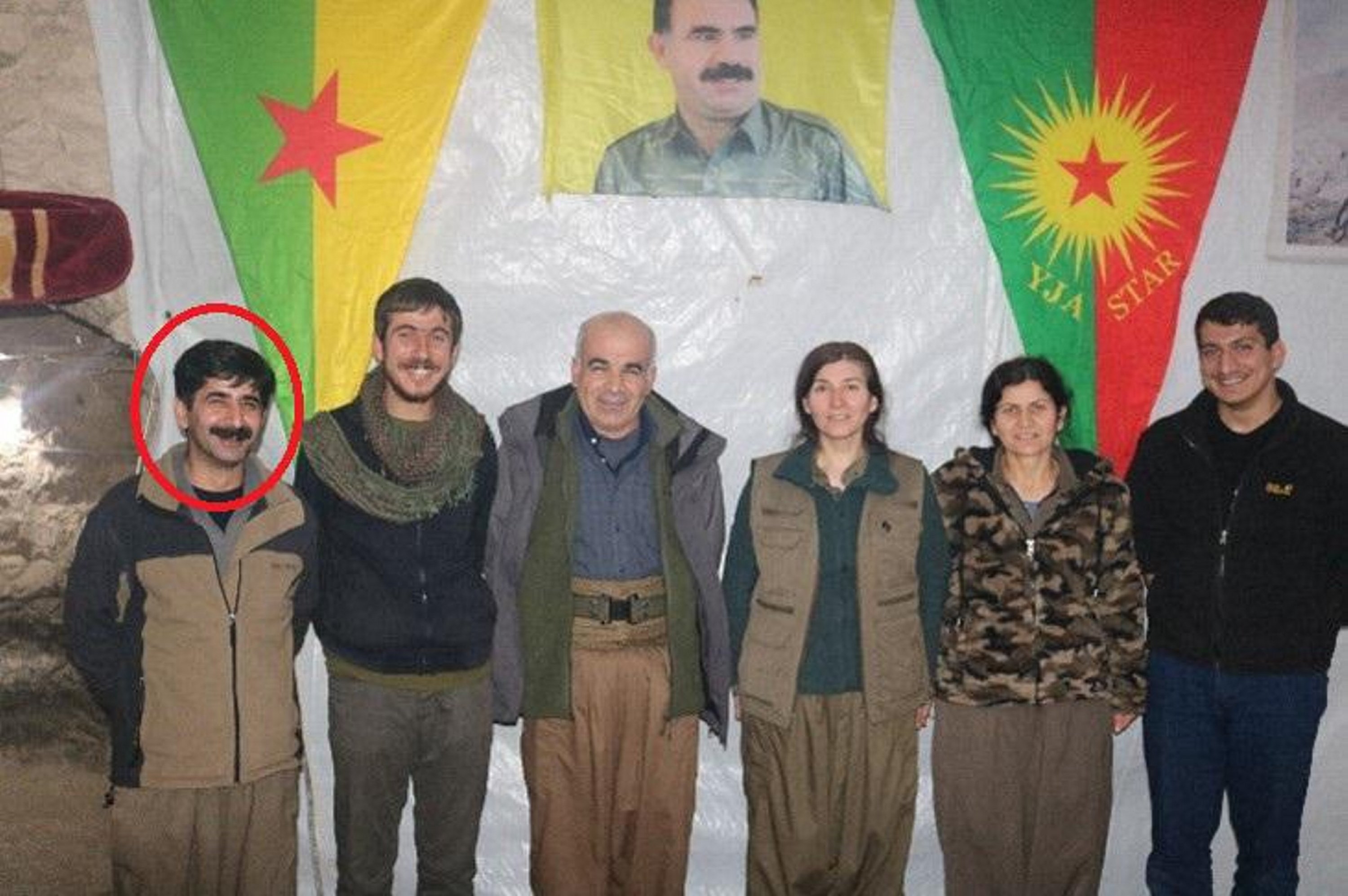
Türkiye’s National Intelligence Organization (MIT) has eliminated the head of the PKK terrorist group’s so-called self-defense units in an operation in Iraq, security sources said Monday.
Lokman Ismail, a Syrian national code-named "Şiyar Muhtar,” was targeted in a precision strike in northern Iraq close to the Turkish border, sources said.
Ismail had been active in the PKK for 30 years. He organized the series of attacks against Turkish security forces in eastern Şırnak province during Operation Trenches, which cracked down on PKK terrorists in the city between 2015-2016.
It was again Ismail who ordered a 2019 bomb attack on two cars by Syrian nationals in the southern Adana province.

According to security forces, Ismail joined the PKK ranks in 1995 in Syria and was personally trained by PKK leader Abdullah Öcalan, who has been held in an island prison near Istanbul ever since Turkish security agents seized him in Kenya in 1999.
Between 1996 and 2004, Ismail led armed activity in Türkiye and moved to the Iraqi region of Zap in 2004, where he was given special military training at PKK camps.
When the PKK attacks in Şırnak in 2015 were squashed, Ismail moved to PKK’s Iraqi field. Sources said that by 2018, he was giving so-called self-defense training in the Haftanin region.
Turkish security forces regularly conduct counterterrorism operations in Türkiye's eastern and southeastern provinces, where the PKK has attempted to create a stronghold in its four-decade campaign of terror.
The PKK was established in the Turkish capital, Ankara, in 1974 as a Marxist-Leninist organization by mostly left-leaning Kurdish students led by Öcalan. The group, designated a terrorist organization by Ankara, as well as the United States and the European Union, initially sought to establish a joint independent entity in Kurdish-dominated areas of Türkiye, Syria, Iraq and Iran, calling it "Kurdistan."
Their armed attacks began in August 1984 in the southeastern Siirt and Hakkari provinces. In its attempts to seize land in the region by spreading fear, the PKK did not hesitate to kill those who opposed the terrorist group.
Throughout the 1990s, its massacre peaked as the group didn’t discriminate between security forces and civilians in rural raids or urban attacks.
These cities that were once synonymous with the PKK violence have been cleared of terrorists in the past decade and authorities have been carrying out infrastructure work to encourage returns.
The conflict in recent years has been more focused on the mountains of northern Iraq's semi-autonomous Kurdistan Regional Government (KRG)-administered region, where the PKK militants have their headquarters in Qandil, which sits roughly 40 kilometers (25 miles) southeast of the Turkish border in Irbil.
Türkiye has, over the past 25 years, operated several dozen military bases in northern Iraq in its war against the PKK and has been conducting airstrikes as part of "Claw” operations since 2022 to demolish terrorist lairs and prevent the formation of a terror corridor along its borders.
Defense Minister Yaşar Güler said recently that the ongoing Operation Claw-Lock, launched in April 2022, would be completed before the winter to sever the ties between Syria and Qandil.
The aim is to wipe out the PKK from the immediate Turkish borders and create an approximately 40-kilometer-deep security corridor along the Iraqi and Syrian borders.
The PKK is not recognized as a terrorist group in Iraq but is banned from launching attacks on Türkiye from Iraqi soil.
Ankara and Baghdad have been at loggerheads over Ankara's cross-border military operations against the PKK in northern Iraq.
Iraq has said the operations are a violation of its sovereignty, but Ankara says they are needed to protect itself.
Baghdad in March outlawed the PKK and agreed in August to military cooperation that will see joint training and command centers against the terrorists, but Ankara wants Iraq to recognize it as a terrorist organization fully.
The PKK relies on support from a party operating in the KRG-controlled region in Iraq as Baghdad and the KRG has tightened measures against the group, including a ban by Baghdad. In Syria, it boasts support from the U.S. under the pretext of fighting against Daesh.
